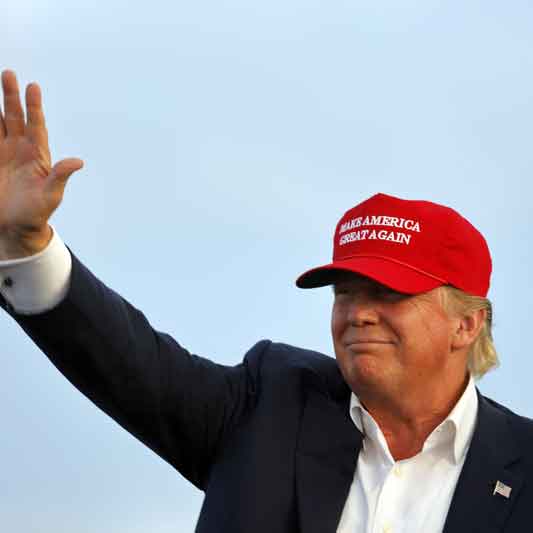White House Press Secretary Karoline Leavitt is standing her ground in defending President Trump as renewed questions arise over his health—particularly with a series of “senior moments” and physical signs suggesting age may be taking its toll.
Here’s what’s been noted so far:
Chronic venous insufficiency confirmed: In July, the White House announced that Trump, now 79, has a harmless vein condition that causes ankle swelling—commonly referred to as “cankles.” Exams ruled out any heart problems or blood clots, and officials maintain he is still in “excellent health.”
Repeated geographical confusion: During a recent “Fox & Friends” interview, he appeared to forget the name of the Atlantic Ocean, describing it simply as a “big, beautiful ocean” while discussing Ukraine. This follows earlier moments where he claimed he was heading to Russia despite the meeting being in Alaska.
Trouble with recognition and setting: At a summit, Trump didn’t seem to recognize Finnish President Alexander Stubb—who was sitting directly in front of him—even though the two have golfed together. He then asked aloud, “Where are we here?” before Stubb reminded him of his presence.
Forgetting people nearby: In the Oval Office, Trump thanked officials for being “here, wherever you may be,” prompting one to say, “I’m right behind you.” A similar situation occurred when he was signing a veterans bill—he looked around, asked “Where’s Derrick?” only for the lawmaker beside him to respond and introduce himself.
Public rambling and unusual comments: Observers have noticed a pattern of drifting off-topic, mixing up ideas, and making “incoherent” remarks on subjects like windmills, plumbing fixtures, and muddled stories—fueling more speculation about his mental sharpness.
Bottom line: While Trump’s vascular condition is non-serious, recent incidents—geographical missteps, memory lapses, and public mix-ups—are raising concerns. Leavitt continues to emphasize that he is “working very hard,” but critics argue these recurring slip-ups are impossible to ignore.
Who’s watching—and why it matters:
Medical and mental health experts warn that signs such as confusion or difficulty staying on track could point to cognitive decline, but stress that a proper evaluation, not isolated clips, is needed to judge.
The media and public are drawing comparisons to past presidents like Biden, whose age and capability became central political debates. Critics say dismissing these signs now would repeat previous mistakes.
Political allies, including Leavitt, are working to reframe these episodes as harmless gaffes or side effects of a demanding schedule, but for many voters—especially independents—the optics remain troubling.
In short, although doctors say his physical health is solid, Trump’s public poise and mental focus appear less stable. These ongoing “senior” episodes may not be urgent medical crises, but at 79, the perception is carrying political weight.
For perspective, presidents operate under relentless scrutiny, where even small missteps make headlines. Trump’s ankle swelling might be insignificant, but combined with moments like saying “I’m going to Russia” while actually in Alaska, or failing to recognize someone nearby, it becomes harder for the public and press to dismiss as “just Trump being Trump.”
Psychologists caution against snap judgments, while acknowledging that consistent memory or spatial lapses justify further review. Unlike Biden, who shared full medical reports, Trump’s physician statements remain limited, fueling speculation. Polls reveal growing voter concern—when it comes to age and mental fitness, transparency matters more than ever at this stage of his term.
Concerns about President Trump’s health reignited after he linked his wish to end the Ukraine-Russia conflict to improving his chances of entering heaven.
In an August 19 Fox News interview, Trump said he felt he was “at the bottom of the totem pole” in terms of getting into Heaven, sparking questions as to why he had become so focused on the afterlife.
Conspiracy theorist Alex Jones has amplified the alarm, calling Trump’s situation a potential “health crisis” and warning of dangers if the 79-year-old does not slow his pace.
Speaking a day after the “heaven” remarks stirred renewed debate over Trump’s condition, Jones urged those around the president to convince him to take at least one day off each week—suggesting golf, movies, and relaxation as well-earned breaks.
According to Citizens for Responsibility and Ethics in Washington (CREW), Trump has visited his own properties 99 times so far, including 62 trips to golf courses—a 37% rise from his first term. DidTrumpGolfToday.com reports he has spent about 23% of his presidency so far—roughly 45 of his first 191 days back in office—playing golf.
A satirical column in The Guardian also referenced claims that Trump has spent about one-quarter of his second term on the golf course, highlighting the image such leisure time projects. Overall, the president is golfing significantly more than during his first term, with dozens of outings amounting to substantial time away from the White House.

